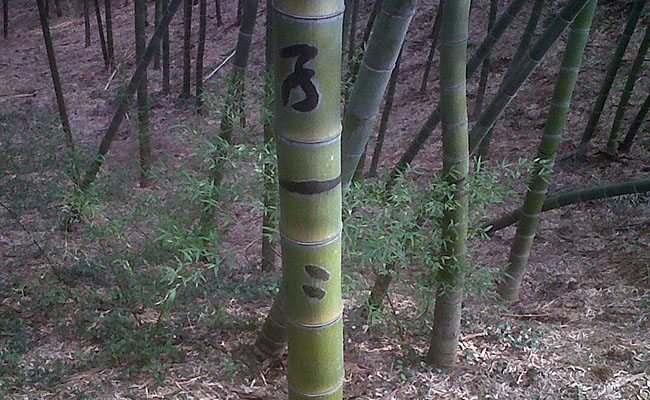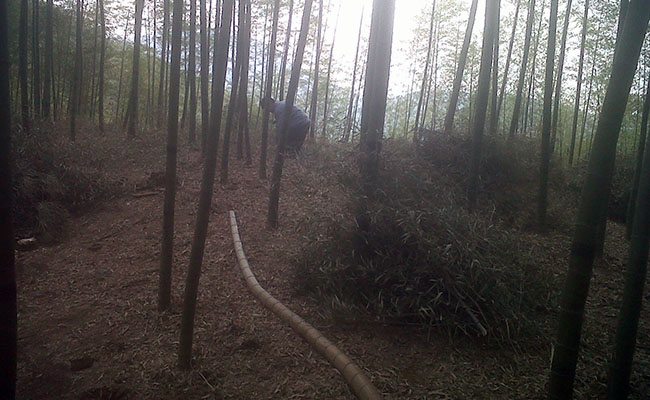Why enforcing the contentious issue of individual property rights might actually be a good thing for China.
Moganshan Mountain near Hangzhou in China’s Zhejiang Province is famous not only for striking scenery and white tea, but also for bamboo. Bamboo is an extremely versatile plant and over the centuries, the Chinese have grown it to make highly-flexible wood products and nutritious foods. On a recent visit to Moganshan Mountain I enjoyed eating stir-fried bamboo shoots and bamboo hearts in soup and saw brooms made of bamboo twigs and scaffolding constructed from bamboo poles.
I also toured a bamboo forest while there and hiking through the forest I encountered a curious sight. Roughly every 30 feet a bamboo plant would have a name and a number marked on it. Asking the guide about this he explained that the name marks an area of the bamboo forest belonging to a family while the number indicates the ages of the plants.

Although originating long ago, this practice offers a lesson for China’s growth today. It illustrates the importance of property rights to encourage “asset-specific” investments. Since this is a mouthful, let me explain what I mean. Although bamboo plants grow relatively quickly (two to seven years depending on the species), they require significant investment to bring to maturity. To allow adequate light and soil resources, the bamboo must be thinned and the forest cleared of debris. Before each winter the top branches of the plants must be pruned to prevent excess snow from collecting and bending the plants beyond their breaking point (growers use the trimmed branches to make the brooms I mentioned earlier). Once harvested, the bamboo must be leached of its sap to make the wood durable.

Clearly raising bamboo requires significant investments, but why do I call these “asset-specific” investments? Economists use this term for an investment which cannot be easily transferred to another asset. If I spend time nurturing, pruning and leaching a bamboo plant, this effort cannot be transferred to any other plant or asset. The payoff from my investment is embodied in the plant that I cared for–I can only realize it if I ultimately harvest the plant and sell the result as wood or food.
Why are property rights critical when an investment is asset-specific? Suppose that I had no property rights over a bamboo plant that I had cared for over the past five years. Someone else could swoop in, harvest it, and reap the rewards of my investment. It is probably obvious that this is bad news for me. What may not be so obvious is that this is bad for the economy as a whole. If I went ahead and cared for the bamboo plant oblivious to the fact that someone else will come along at the last minute to claim the benefits, then only I would be hurt. However, I like to think I would not be so foolish. It is more likely that I will not care for the bamboo plant to begin with. That is, without clear property rights I will not make the investment to begin with. Bamboo production will suffer and fewer people will get to enjoy the versatile wood or nutrition it provides.
So how is this age-old practice of bamboo marking relevant today? This same principle applies to much larger investments than my single bamboo plant. Imagine an entrepreneur thinking about investing many years and significant money in developing a more efficient battery. If she is uncertain whether she will be able to prevent others from copying the cell’s design once completed, then she may not undertake the investment to begin with. Copycat products hurt not just those whose products are copied, but they hurt China’s economy as a whole by chilling innovation. Although the Moganshan farmers figured out their own system of enforcing bamboo property rights, it is largely up to the Chinese government to enforce these property rights in the wider economy. Clearly defining property rights and making them enforceable in court will keep innovation growing–just like the villages in Moganshan keep the bamboo growing.




















